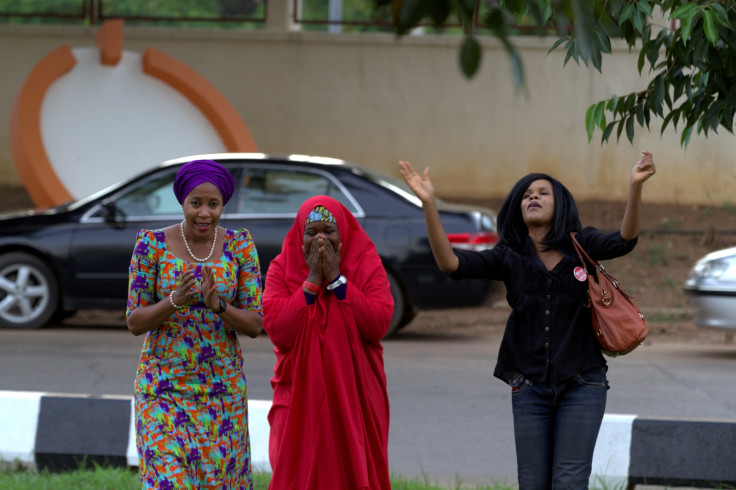Chibok girls may have been released, but let's not forget the other Boko Haram victims
Chibok abduction not the first Boko Haram mass-kidnapping, but only one to attract international outrage.
The release of 21 Nigeria girls kidnapped by terror group Boko Haram is a relief – but it does not mean the insurgency is over, a counter-terrorism expert has told IBTimes UK. On 13 October, the Nigerian government confirmed that 21 out of the 219 girls had been freed thanks to negotiations between Nigeria and Boko Haram brokered by the Red Cross and Switzerland.
The 276 schoolgirls were kidnapped as they were attending evening school in Chibok, in the restive Borno state, on 14 April 2014. Allegations followed that they had been sold as sex slaves, forced to marry their abductors and used as suicide bombers.
Some girls managed to escape, with one rescued in the Sambisa forest earlier this year. Following the recent government statement, it is believed at least 197 are still missing.
Although the Chibok abduction was not the first mass-kidnapping carried out by the terrorists, it was the only one that attracted international outrage. It led to the creation of the global movement Bring Back Our Girls, which shone a spotlight on the deadly insurgency of Boko Haram that had previously been under-reported.
"It's a welcome relief for the parents and the girls released. However, the focus should be inclusive of all victims held captive by the sect," David Otto, counter-terrorism expert at UK-based TGS Intelligence Consultants said.
Who are Nigeria's Boko Haram?
Boko Haram, which has renamed itself Iswap, fights against Western influence in Nigeria and aims to impose its version of Sharia law throughout occupied territories.
The group launches attacks in Nigeria and neighbouring countries in a bid to take control of more territory. Three Nigerian states – Adamawa, Borno and Yobe − have been under a state of emergency since May 2013.
Boko Haram has killed more than 20,000 people since 2009 and was deemed the world's deadliest terror group, surpassing Islamic State in November 2015. Nigeria has also become the world's third-most terrorised country as a result of the group's violent insurgency.
"This does not mean that the conflict is over – it is likely a prisoner swap rather than a peaceful negotiation to end the violence. Be mindful there was an attack in Maiduguri yesterday – an indication that a prisoner swap is not peaceful negotiationm but it creates an avenue for future dialogue," Otto, who is also a senior adviser for Global Risk International (GRI) , continued.
In order to raise awareness about the scale of Boko Haram's insurgency, which goes far beyond the Chibok kidnapping, Maiduguri-based activist and peace ambassador Ahmed Umar Bolori launched the Care for All campaign earlier this year.
"The Chibok girls advocacy shows no or very little concern about the rest of the girls, boys, men and women who were either abducted or somehow victimised by the insurgents in several communities including Baga, Marte, Monguno, Kareto, Ngala, Damboa, Banki, Dalori, Konduga," Bolori, who was approached by Boko Haram in a failed recruitment attempt, told IBTimes UK.
"If activists and the government do not include everyone, we will consider them responsible for the rest of the damage."
Nigeria up close: Check out our Flipboard magazine

© Copyright IBTimes 2025. All rights reserved.






















